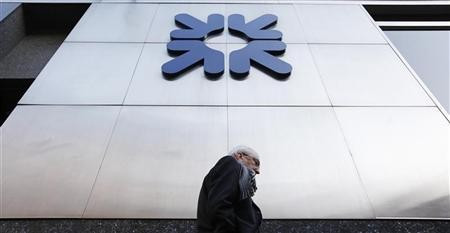Ex-BoE's Andrew Large: Regulator Will Act if RBS Small Business Accusations Are True

Britain's former Bank of England deputy governor says the regulator is likely to take action against the Royal Bank of Scotland if accusations that the lender engineered business bankruptcies for profit, are proven to be true.
Large, who is leading an independent report into RBS, says the bank had taken the findings of his report and the Business secretary's adviser, Lawrence Tomlinson's, "very seriously".
"I merely looked at the assertions themselves which were clearly very serious. If they are found to be true it's almost certain the regulator will take quite an interest in it," said Large.
Large's report, which was commissioned by RBS, recommended the bank look into concerns over its treatment of struggling small businesses.
Earlier today, Lawrence Tomlinson, an adviser to Vince Cable, slammed RBS for engineering businesses into default after moving them into its Global Restructuring Group (GRG).
He added that the 81% government-owned RBS also profited from their struggles as by moving them into GRG, this can create more revenue for the bank through higher fees and margins.
It can also result in the purchase of devalued assets by its property division, West Register.
RBS has since announced that it has drafted in heavyweight lawyers to review the treatment of small-to-medium sized enterprises.
According to a statement by RBS' newly installed chief executive, Ross McEwan, the bank has appointed Clifford Chance to help its inquiry into the treatment received by SMEs in financial distress.
"To ensure our customers can have full confidence in our commitment to them I have asked the law firm, Clifford Chance, to conduct an inquiry into this matter, reporting back to me in the new year," said McEwan.
RBS received a taxpayer funded £45bn (€54bn, $73bn) bailout in 2008. It is not unusual for a bank to remove problem loans from its books, especially when it is looking to reduce its exposure to risky assets.
A number of financial institutions have either siphoned off or created internal or external "bad banks" to deal with toxic assets.
In May this year, IBTimes UK conducted a special investigation into businesses that claim Britain's biggest banks were wilfully engineering SMEs to fall into default.
© Copyright IBTimes 2025. All rights reserved.






















